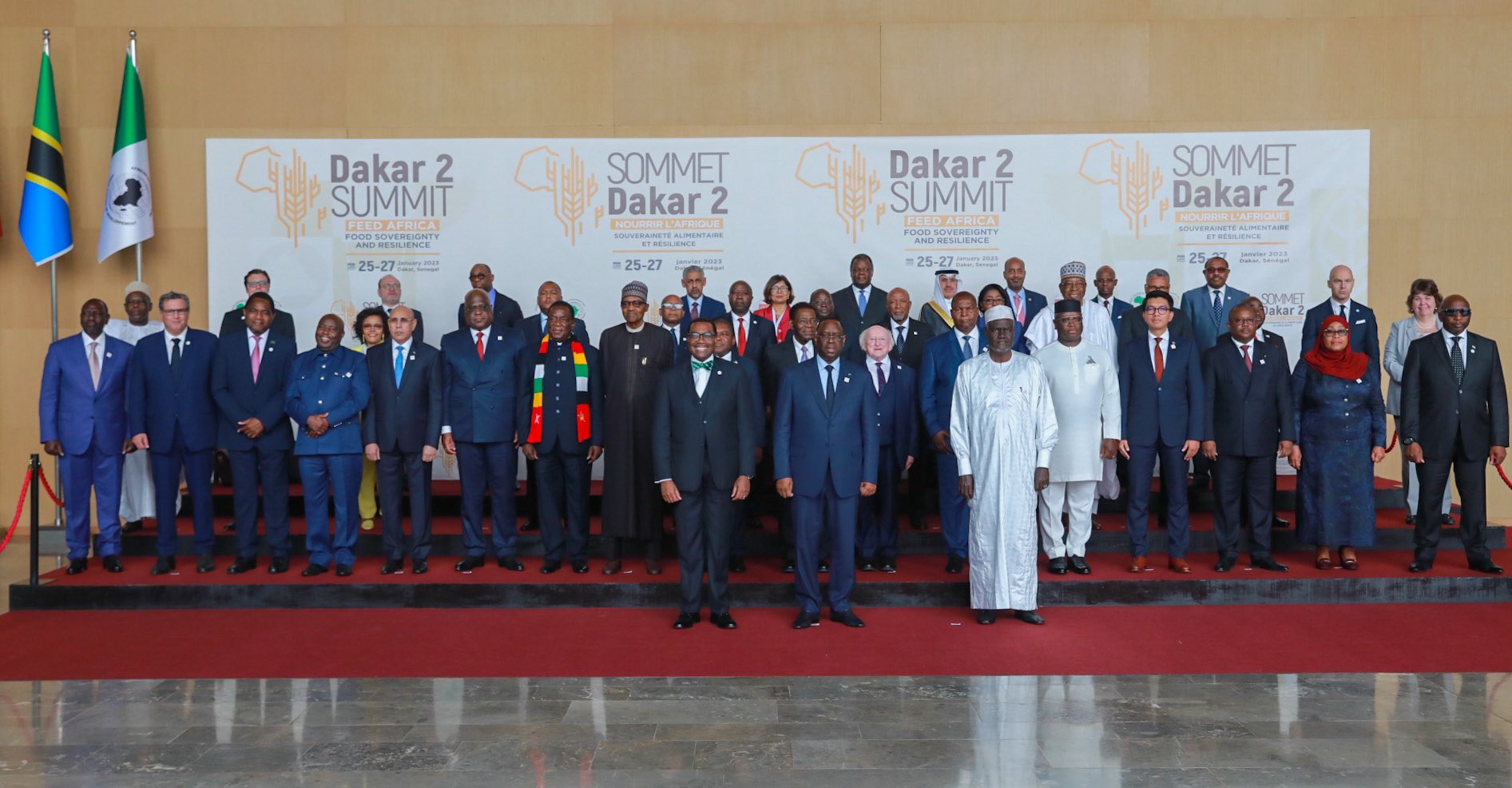The Africa food summit (Dakar 2) in Senegal ended last week with development partners agreeing to commit $30 billion to back the continent’s resolve to boost agricultural productivity and become self-sufficient in sustainable food production in the long-term.
As previously reported, hundreds of millions of Africans suffer from food insecurity while 65% of the uncultivated arable land left in the world is located in Africa. The situation is aggravated by climate change and the disruption of food supply because of the war in Ukraine.
Africa is currently forced to import millions of metric tons of food at an annual cost at $7-15 billion. The cost is predicted to increase multifold by 2030 with the increase in population unless Africa develops its own food production capacity.
In a concept note ahead of the summit, the African Development Bank outlined the challenges and predicted that Africa’s agricultural output could increase from $280 billion per year to $1 trillion by 2030 with the removal of barriers to agricultural development aided by new investments. The concept paper also highlighted the importance of “Food and Agriculture Delivery Compacts”.
$30 billion to kick off Africa’s agricultural transformation
Addressing the closing plenary on Friday, African Development Bank Group President Dr Akinwumi Adesina said that the continent and its partners are determined to see results and that implementation is critical to boosting food production and feeding Africa.
“The message was clear: we will work together to strongly support the implementation of the Food and Agriculture Delivery Compacts at country levels,” he said. “We have come to respond to the vibrant call of Africa: the time is now for Africa to feed itself.”
The Compacts follow the Strategy for Agricultural Transformation in Africa which was adopted at the first summit in Dakar in 2015 and aim at fully unlock Africa’s agricultural potential.
They will lay out the gaps in food production at country levels and how to meet them with the doubling of productivity of crops, livestock, and fisheries, deploying agricultural technologies at scale and developing infrastructure, markets, and financing frameworks.
Dr Adesina underlined that the political will of the African heads of states and government has translated into concrete measures at the summit. In total, 34 African heads of state and government attended the summit. They are committed to setting up presidential high level advisory councils to oversee the implementation of the Compacts.
The summit adopted the Dakar Declaration on Food Sovereignty and Resilience. Among the major results is the planned investment of $30 billion in support of Africa’s agricultural transformation via the Country Food and Agriculture Delivery Compacts.
The African Development Bank plans to contribute $10 billion over five years. The rest will come from several other development partners, among them the Islamic Development Bank. However, more funding is needed and the declaration mentions the need to increase financing from national budgets to support the Country Compacts by allocating at least 10% of public expenditure to agriculture.
A global collaboration
In its huge effort to become self-sufficient in food production, Africa will need the full support of its international partners, not the least the EU. The organisers wrote that the summit benefited among others from the partnership with the EU Food and Agriculture Resilience Mission (FARM) which was launched by the French EU-Presidency last year.
Irish President Michael D. Higgins was present at the summit and delivered both opening and closing remarks. “Let us make this century Africa’s Century, one which will see the continent become free from hunger, a shared continent in a global family, one based on the firm foundations of respect for each nation’s institutions, traditions, experiences, and wisdoms,” he said.
Three EU member states, France, The Netherlands and Germany, also sent ministers to the summit or attended it via video-link. Kitty Van Den Heijden, the Dutch Director-General for International Cooperation, announced that her country would commit an additional €450 million over the next five years to food security programs with a focus on Sub-Saharan Africa.
The Brussels Times reached out to the European Commission for a comment. The Commission was represented at the summit by its head of delegation in Dakar. The Commission spokespersons reiterated EU’s support to Africa’s food supply, both in terms of humanitarian support to the most vulnerable countries, strengthening Africa’s food production capacity and developing sustainable agriculture.
The Brussels Times

